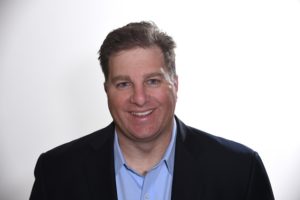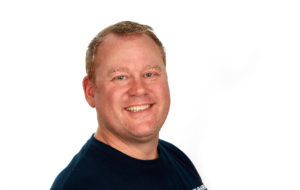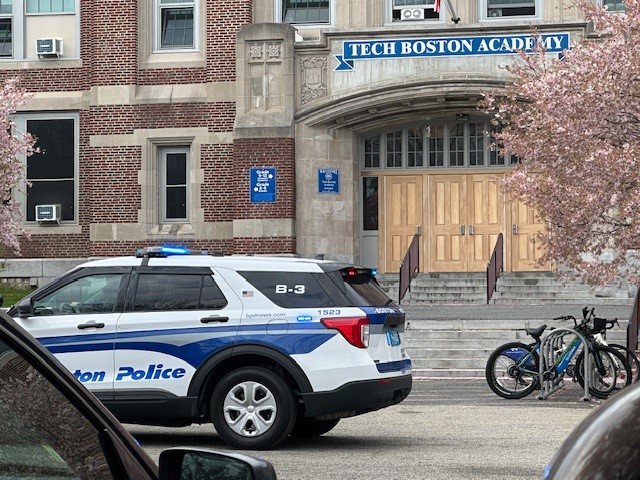If someone distilled Mark Cuban’s pieces of advice on becoming rich to form a single statement, it would sound like this: no single saving or earning is too small, as even one penny contributes to the total.
It’s a lesson that resonates with Cuban’s middle-class childhood, when the owner of the Dallas Mavericks and star of ABC’s Shark Tank — whose current net worth is estimated to be $3.7 billion — had to sell garbage bags to save up for a pair of sneakers he liked.
Also, it’s a lesson that resonates with the mission of Billshark, a local startup that promises to lower customers’ bills and one of Cuban’s latest investments. Co-founders Steve McKean and Brian Keaney, who announced the Cuban-backed status of their venture two weeks ago, said they were introduced to him by mutual friends.

“Mark always has an interest in financial wellbeing and financial literacy,” McKean said. “[Our mutual friends] thought it would be interesting for Mark to take a look at this.”
Billshark wants to save time and money for customers by unleashing an army of human experts called “sharks” — no doubt Cuban liked the semantics here, too — who call companies like AT&T or Verizon to dispute customers’ bills on their behalf and land the best possible discount, if any. The company makes money by taking home 40 percent of each saving they successfully negotiate.
In other words, customers outsource the time-consuming task of calling utility providers to an expert in exchange for a fee that materializes only with a saving. Based in Hopkinton, Mass., Billshark launched in April 2016, currently has 28 employees and serves the U.S. and Canadian markets. McKean said that since launching, Billshark saved around 52,000 customers close to $10 million, bringing in a revenue of $3.3 million.
Local
In-depth news coverage of the Greater Boston Area.
McKean and Keaney said that Cuban made an undisclosed investment in Billshark that is part of a $2 million total financing received by “private wealthy individuals,” McKean said, adding that Cuban is also an advisor to the company.
“Everything you read about Mark Cuban responding fast to emails and being entrepreneur-friendly is all true.”
“Brian and I correspond with Mark every week, if not multiple times during the week,” McKean said. “Everything you read about Mark Cuban responding fast to emails and being entrepreneur-friendly is all true. He’s awesome.”
The typical U.S. family spends at least $2,200 a year on home utility bills, according to a report by the U.S. Department of Energy, with variations depending on the price of electricity, gas, water, cable TV and Internet.
Prices can go up and many people simply don’t negotiate, because they surrender, or don’t want to take the time, or are afraid, McKean (a CPA by background) said. He and Keaney, who have been working together for the last ten years, came to this realization while working at Acceller, a company — founded by McKean and acquired by Bridgevine in 2014— in the space of customer acquisition for cable, wireless and telecommunication brands. As head of the call center operations, Keaney, in particular, heard hundreds of customers’ complaining about companies overcharging bills every month.

Enter Billshark. To use the service, customers download a free app to submit their bills (the company doesn’t negotiate credit card bills, mortgages or student loans, but focuses on cell phone, cable TV, satellite TV, satellite radio and home security bills). The platform extracts automatically part of the information in the bills; then, the case goes to a supervisor, who assigns it to the shark with more experience with the provider. Now, the shark hops on the phone armed with time and experience.
“Our team of sharks are very versed in taking the emotion out of it and just negotiate the best deal,” Keaney explained. “They know the right words to use, the right plans and promotions to ask for… They call every day, so they just learn.”
One of the techniques of the sharks, Keaney added, is over-asking. If asked how much they want to save on their bill by providers, they don’t say things like “a little bit” or “five bucks.” Instead, they say to the provider “we want to cut the bill in half” or “we want to take the bill to zero.” Overshooting, according to Keaney, is the best way to negotiate the highest possible saving.
After calling the provider, the sharks let every customer know the outcome. If no saving is accomplished as a result of the negotiation, customers still get the information that they have the better possible deal. On average, the company said they can land a better deal for 80 or 85 percent of the “thousands” of bills they receive every month, McKean said.
McKean added that for every one bill they negotiates, the company donates one hour of financial literacy instruction to a child. The initiative is part of a program launched last fall with radio host and money expert Dave Ramsey; during the last school year, the company donated 52,000 hours of instruction to 1,000 fifth-graders and middle schoolers in Boston.
We bet that “ain’t no saving small enough” was probably mentioned at some point in the program — and that Cuban would approve.



